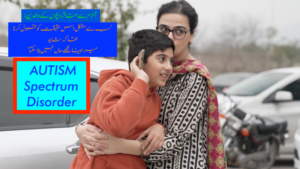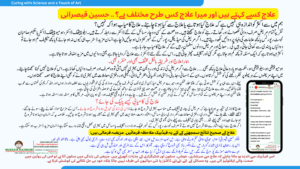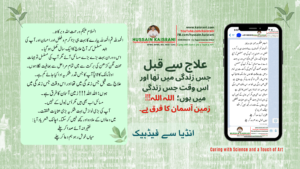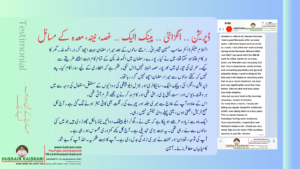Baryta Muriatica
Chloride of Barium
Ba Cl2 2H2O
The essential features
This remedy, though presenting many similarities in its gross symptomatology with Baryta carbonica, yet has features of its own. It has all the main symptoms of Baryta carbonica including the difficulty in concentration, the dulness of mind, the confusion, the indecision and the immaturity. The Baryta muriatica patient is confused in her mind. She does not answer properly, as if she were thinking of something else at the moment. She has great difficulty in concentration while studying or reading, and difficulty in learning, comprehension, and memory. She is irresolute and indecisive, and very similar to Baryta carbonica in her immaturity. There is anxiety about the future, and a rapid progression to a state of idiocy.
The primary action of Baryta muriatica, which presents us with the unique picture of this remedy and on which I shall now focus, is concentrated on three particular areas: the nervous system, the vascular system and the glands.
The effect on the central and peripheral nervous system
This is primarily a “convulsive remedy” in the broadest sense of the word. When the nervous system is affected we see a hysterical person with a tendency to convulsions, twitchings or choreic movements. The picture one gets from this remedy is of a build-up of unexpressed energy that suddenly erupts in the form of hysterical fits, epileptic fits, convulsions or twitchings. During such a hysterical fit the patient feels a tremendous anxiety that almost prevents her from breathing and her tendency is to fall down on the ground and roll there in agony. Another condition can be great anxiety, with pressure in stomach, nausea and retching, where the patient must bend double in order to feel better.
Baryta muriatica patients experience the strange feeling that the legs are non-existent, and have the illusion of walking on their knees without legs. This is accompanied by the tendency to bend over and roll on the ground.
As an example of such a case you may see a woman who suspects that her husband is not interested in her any more, or who believes that her husband is having an affair with another woman. On the least provocation, following the mildest remark from her husband, she goes into a hysterical state. She falls to the ground in a semiconvulsive state of anxiety. The idea underlying this behaviour is that she falls to her knees, totally helpless in front of the all-powerful master, as she is incapable of a better reaction.
A feature of this remedy is the lack of a sense of humiliation, prevalent in Natrum muriaticum. On the contrary, the Baryta muriatica patient is essentially humble without any egotistic element whatsoever. Baryta muriatica is weak-willed and weak-minded, and therefore does not have the courage to voice an argument or to carry a discussion to demand her due. She feels better when she stoops down or bends over physically – but also when she yields and submits mentally. The anxiety is better when stooping, the stomach and abdominal pains are better when stooping. She must “lean over” in order to feel better, and, most remarkably, has an aggravation of symptoms when “rising up”.
It should not be forgotten that this behaviour is exhibited by a person whose mind is confused, whose understanding is restricted and who is timid and cowardly, needing protection to face the challenges of life. These patients easily develop fears of people and of evil; they indulge in few social contacts and little conversation, being by nature suspicious and averse to company. The insecurity that dominates the patient causes her to cultivate excessive sexual excitement in her imagination, should she fall in love with somebody, with the result that the excess of excitement can lead to explosions of apparent acute insanity. In fact the patient is suffering from manic-depression, with the mania state manifesting every time she falls in love when the sexual excitement that is generated cannot be fulfilled.
The Baryta muriatica woman characteristically shows an exaggerated attachment to the loved one, with a tendency to suffocate him. A typical result will be an increase in sexual desire and excitement on her part, with a corresponding decrease of interest on the part of her husband. It is this state of conflict that brings about the syndrome of “acute insanity from sexual excitement” that is one of the main characteristics of this remedy.
The imagination turns to sexual matters and produces a frenzied desire for sexual intercourse, so much so that it will lead women to nymphomania and men to satyriasis. The sexual element is particularly strong in this remedy, and a great deal of its symptomatology originates from this feature, quite unlike Baryta carbonica where the sexual element is by no means so important.
The prevalent symptoms during the Baryta muriatica state of insanity are confusion, disorientation, and idiotic or childish behaviour. There are delusions where familiar things seem strange, and where the locality around the patient seems changed. Out of all the Baryta’s, this remedy is the fastest to bring about a state of idiocy, of imbecility, with all the characteristics of the disease. The facial expression is idiotic, with drooping jaw and drooling saliva, the eyes are vacant. This state can be accompanied by epileptic fits, chorea or swollen glands. It is similar to Cicuta in this respect.
The convulsive tendency, as mentioned, is a very important feature for this remedy. The convulsions characteristic of Baryta muriatica are as follows: convulsions with headache, deafness, vomiting and burning in the the stomach; convulsions with full consciousness, with electric shocks; clonic spasms. Periodical attacks of convulsions, with excessive jactitation of the limbs. Convulsions, accompanied by shocks which shake the whole body. Convulsive tremor and twitches. Epileptic convulsions. Convulsions from worms. Convulsive trembling. Further important symptoms include:
Violent chorea, the arms and legs are in constant jerking so that she cannot feed herself nor walk. The face is spasmodically twitched, and the the speech is unintelligible. All the spasmodic movements cease during sleep.
Voluntary muscular power gone but perfectly sensible.
Multiple sclerosis and other neuro-muscular disorders will fit its picture, as do icy coldness of the the body, with paralysis, paresis after influenza and diphtheria, paralytic weakness and left sided paralysis.
The effect on the vascular system
Both elements in this remedy have a strong action on the heart and arteries. Baryta muriatica has a great reputation for improving aneurysms, especially of the descending aorta, and also abdominal aneurysm. It causes hypertension with high systolic pressure, and comparatively low diastolic tension.
Other conditions for which you will need Baryta muriatica are: arterio-sclerosis; tachycardia from excitement; increased tension of pulse; pulse fast, 120; full, hard, small. Rising up from bed brings on many symptoms.
The effect on the glands
The diseases most amenable to this remedy are those which affect the glands in general, and most particularly the lymphatic glands, the parotid glands and the pancreas. The conditions which benefit from Baryta muriatica include: enormously swollen and indurated lymphatic glands around the neck. Stitching in glands and along nerves. Painful swelling of glands. Parotid glands hard and swollen. Swelling of salivary glands.
Attacks of tonsillitis occurring in spring and autumn. Enlargement of the glands and induration of tonsils and pancreas. Inflammation of glands, adenitis and infectious mononucleosis.
It is the natural complement of Conium in glandular affections and bears many similarities to it, though much deeper acting.
The children
Baryta muriatica children present a similar picture to Baryta carbonica children. They do not want to play like other children, but are isolated, sitting in corners and giving confused answers. They may be hard of hearing. They are dull and have difficulties in learning, being unable to remember what they study. They suffer from a retarded development, and in serious conditions present a picture of imbecility. Baryta muriatica is suited to scrofulous children, who go around with their mouth open and talk through the nose. Such a child may lie on its abdomen to shun the light.
An example from a case may serve to illustrate this condition: The whole neck was covered with indurated glands of the size of an egg; the abdomen was much distended and hard; the seventh and eighth dorsal vertebrae projected posteriorly in a lump. Both ears discharged an offensive pus; tongue coated; stool produced only by enemata; faeces small in quantity, white in color, and hard as a stone; the urine yellowish and very offensive; the feet swollen.
Generalities
The patient desires open air, yet open air often increases the symptoms.
General physical anxiety is a strong feature.
Heaviness externally and internally as from weakness and relaxation.
Extreme lassitude, compelled to lie down. General feeling of lassitude in the morning, especially weakness of the legs, with muscular stiffness.
Weakness in whole body, can hardly move a limb; general muscular weakness while walking; paralytic weakness; weariness. General malaise, faintings. Heaviness and prostration, must lie down. Weakness from ascending stairs. Dread of bathing like Sulphur.
Bleeding from mucous membranes and from ulcers.
Symptoms come before and during menses.
Neither motion nor pressure is painful
Painless symptoms predominant and pain is the exception.
Many parts are tender to pressure.
Formication all over the body.
Sensation of internal fulness.
External numbness of whole body.
Perspiration staining the linen.
Complaints from suppression of foot perspiration.
Better lying on right side; riding in a car.
Some symptoms are better from motion.
The earache is better by sipping cold water.
Head bent forward ameliorates the breathing.
Worse rising from bed.
Complaints such as dyspnea, palpitation and weakness are worse ascending stairs.
Complaints are prominent in the morning, forenoon, afternoon, evening, night and after midnight.
The symptoms are often worse in cold air and from becoming cold, worse in wet weather. They are worse in fall and spring. Complaints left-sided – worse while sitting; must lie down.
Symptoms come on during sleep – worse while standing.
Lying on painful side: earache worse.
Vertigo
Fainting; vertigo when walking; objects seem to turn in a circle.
Vertigo due to cerebral anemia with noises in ears.
Vertigo in old people.
Head
Head drawn forwards.
Headaches, but without acute crisis, occurring in old people; heaviness rather than pain. Heaviness of head so that he cannot keep it up. Headache with angina.
Headache with vomiting.
Headache when moving eyes.
External headache aggravated by pressure.
Tinea capitis extending to sides and posterior portion of neck.
Tinea, with abundant discharge of pus. The whole scalp covered by a thick, offensive crust.
Itchlike eruption on scalp and neck.
Eczema; moist eruption; offensive eruption.
Suppurating eruption.
Eyes
Pupils dilated and immovable.
Eyes sunken.
Eyeballs much inflamed.
Eyes stiff, cannot move them.
Lids on both eyes swollen and inflamed.
Ophthalmia scrofulosa. Child lies on its face in order to avoid light.
Staphyloma on inner edge of left cornea.
Ulceration of lids.
Paralysis of left lid.
Ears
Offensive otorrhea (especially right). It has cured whizzing and buzzing in ears; noises on chewing and swallowing. Deafness. Earache right side; worse lying on painful side; better by sipping cold water. Discharge from both ears of an odor like rotten cheese.
Postscarlatinal otorrhea.
Otorrhea after frequent otitis.
Abscess behind both ears, discharging offensive pus.
Parotid on right side swollen, with a swelling of submaxillary and cervical glands. Both parotids, especially right side, swell after scarlatina.
Nose
Sneezing in sleep, four, five times before midnight, not wakening.
Catarrh of nose.
Coryza, with fever heat.
Nodular eruptions on nose. Broad, red nodule on side of point of nose; biting, tickling soreness and with fine stitches in it when touched. Red pimple on side of tip of nose.
Pain in nose on touch; on biting.
Stitching pain in nose.
Rawness in nose.
Nasal speech
Face pale, with anxious expression.
Red face, with fever.
Tension in whole face, with nausea and diarrhea.
Sensitive drawing, twitchings and spasmodic contractions in facial muscles.
Enlarged, indurated and painful submaxillary glands.
Inflammation, hard swelling and induration of (right) parotid gland. Crusty, scabby eruptions.
Mouth
After fine stitching a pulselike jerking and throbbing toothache; worse after midnight; worse after sleep; is compelled to sit up in bed. Putrid taste in mouth, even food has a putrid taste; tongue and mouth dry.
Ulcers on tongue.
Tongue furred; covered with mucus; collection of slime on tongue.
Salivation, with looseness of teeth, swelling of salivary glands and palate, odor like from mercurialism. Salivation with convulsions.
Offensive breath during menses.
Paralysis of tongue.
Bleeding.
Throat
Valuable in loss of power, paresis of the pharynx and Eustachian tube, with clacking sounds on swallowing or sneezing; air is forced into the tympanum too easily. Chronic hypertrophy of tonsils.
Tonsils enlarged.
Recurrent inflammation of tonsils.
Disposition to tonsillitis, with suppuration each time after taking cold.
Chronic scrofulous enlargement and induration of tonsils.
Hard swelling of cervical glands, that can become enormous in size. Swelling of uvula and palate.
Elongation of uvula, with hyperaemia.
Varicose veins in throat and tonsils.
Pharynx and esophagus inflamed.
Difficult swallowing.
Catarrh extends over tonsils, epiglottis, glottis, into tubes.
Angina tonsillaris, with suppuration, after every cold.
Severe pain in right side of throat and ear; with every paroxysm saliva in large quantities of a deep red color runs out of mouth and fauces, especially on right side; tonsils but little swollen.
Discoloration and redness of uvula.
The whole neck and throat full of hard glandular swellings.
Stomach
Desires dry bread, white bread; dry food, bread and butter.
Indurated and narrowing of the cardiac orifice with pain immediately after eating, and epigastric tenderness. There is great indigestion.
Below stomach to left a hardness from which paroxysms of dyspnea come.
Nausea, with vomiting and violent colic
Vomiting with pain in abdomen; of everything taken, with stringy mucus.
Violent vomiting and purging, with anxiety.
During six hours he vomits small quantities of a disgusting matter.
Burning pain when vomiting.
Incessant vomiting.
Ineffectual retching.
Stomach feels heavy; a pressure in stomach, most after eating solid food.
Cramps in stomach.
Warm sensation rises up to chest and head. Flushes of heat extending over chest and to head.
Abdomen
Abdominal aneurysm.
Hardness of mesenteric glands.
Liver and spleen full of thick black blood; gall-bladder filled with pale yellow, watery bile. Tumefaction of liver.
Induration of pancreas.
Aching, dull pain in region of navel; worse in morning; dry cough.
Pain in abdomen, rising from lying ameliorates.
Sore pain in abdomen in inguinal region.
Distressing throbbing in abdomen (abdominal aneurysm).
Borborygmus.
Abdomen much swollen, distended and hard.
Swelling and induration of abdominal glands, mesenteric glands and lower limbs.
Swelling of liver.
Inguinal glands swollen and painful. Suppuration of inguinal glands.
Fetid, ichorous ulcers in inguinal region.
Worms
Bubo after suppressed gonorrhea.
Rectum
Obstinate constipation. Stool only after injections, excrement white and hard as stones. Hemorrhoids protrude during urination.
Stools of a jellylike appearance, with blood, no pain at all, discharges every 15 or 20 minutes, covered with mucus.
Dysentery in emaciated undersized children.
Yellow, slimy stools; vomiting and exhaustion.
Stools green, thin, watery, chopped and very fetid.
Paralysis of sphincter ani.
Passage of ascarides and slime.
Fistula.
Urinary organs
Micturition painful, constant.
Cystitis.
Frequent urination during perspiration.
Continual violent urging to urinate; sometimes involuntary.
Pain in urethra during urination.
Urine yellowish, of a very offensive odor, whitish sediment.
Great increase in uric acid.
Genitalia – male
Sexual desire tremendously increased leading to satyriasis. Violent sexual passion.
Nightly seminal emissions.
Gonorrhea and gleet.
Hypertrophied testicles after suppressed gonorrhea. Testicles increased in size, hard and painful stitches.
Swelling of testicles and scrotum, painless.
Buboes after suppressed gonorrhea.
Genitalia – female
Menstruation induced.
Sterility.
Leucorrhea.
Induration, tumor, or atrophy of ovaries.
Nymphomania
Violent desire leading to acute insanity.
Squeezing pains in pelvis.
Chest
Aneurysm of the descending aorta.
Bronchial affections of old people with cardiac dilation. Facilitates expectoration.
Mucous expectoration. Catarrh in chest.
Weak, husky voice.
Attacks of anxious dyspnea; rolls on floor, several attacks a day, also at night.
Dyspnea and oppression.
Respiration difficult, impossible when lying; upright ameliorates.
Has to sit up, head bent forward; slime and saliva run from mouth, without cough.
Chronic cough of scrofulous children.
Inner heat in upper chest.
Heart beats irregularly, pulse scarcely perceptible.
Phthisis scrofulosa, with herpetic eruption and indurated testicle.
Palpitation.
Pulse rapid, full.
Pulse soft and irregular.
Pulse 120.
Back
Enlargement and induration of cervical glands.
Submaxillary and cervical glands swollen to size of pigeon eggs, two like hen’s eggs, very hard, and painful on slight pressure. Inflammation of cord.
Curvature of spine.
Itching eruptions.
Tinea from scalp to neck.
Extremities
Inflammation of knee.
Heat of knee.
Painless jerking in arms, principally at night. Convulsive jerkings of hands and feet.
Twitching of arm, worse at night. Twitching of foot.
Eruption like millet seed on hands.
Brownish scurfs. Scurfs on lower limbs; on thigh.
Tension in thighs.
Emaciation of thighs and nates.
When kneeling, a violent stitch, followed by a peculiar tension in right patella, making it difficult to walk.
Tension and increased warmth in knee.
Feet swollen. Swelling of lower limbs after dropsical fever. Swelling of hands and feet. Cramps in toes.
Trembling of limbs.
Pulsation of shoulder.
Paralysis of upper and lower limbs. Paralysis of left hemiplegia.
Suppressed perspiration of foot.
Weariness of muscles of extremities.
Fever
Fever: thirst; loss of appetite; dry mouth and tongue; dysphagia; frequent, full pulse; flushed face; catarrhal; with chilliness; prostration generally lasting seven days, occasionally accompanied by catarrh of eye, ear or nose, or inflammatory action of skin.
Chill with thirst in evening.
Chills with heat, alternately with angina tonsillaris.
Dry heat all day; pulse excitable; head affected. Heat, with coryza.
During fever increased suppuration of ulcers with boys, and enlargement of swollen cervical glands with girls. All day dry heat; pulse irritated; head affected.
Cold sweat.
Perspiration has offensive odor.
Perspiration staining the linen.
Skin
Spasmodic contraction of skin.
Discoloration; bluish spots.
Itchlike pimples on head, nape of neck, abdomen and thighs.
Herpes on various parts. Herpes favinosus all over body, face excepted.
Ecchymoses.
Eczema.
Tetters.
Scrofulous eruptions
Yellowish, scaly eruptions.
Fetid ichorous ulcers in inguinal region.
Scurf, profusely suppurating, on scalp.
Biting pain in skin.
Cold surface; cold extremities.
Whole body covered with ulcers.
Clinical
Aneurysm. Abscess of anus. Asthma. Convulsions. Epilepsy. Deafness. Fistula. Glandular swellings. Idiocy. Mania. Acute insanity. Nymphomania. Leucorrhea. Mumps. Otorrhea. Pancreatitis. Paralysis. Scrofula. Sterility. Affections of testicles. Tinea capitis. Tonsillitis.
Relations
Useful after Arnica, in extravasations of blood.
Similar to Conium in indurations of abdominal glands.
Compare: Con. (indurations of abdominal glands); Iod., Kali iod. and Iris (pancreas); Selen. (pulsations in abdomen).
Compare in sclerotic degenerations, especially of spinal cord, liver, and heart. Plumbum met. and Plumb-iod. Also Aurum mur. which will often accomplish more in sclerotic and exudative degenerations than other remedies. Multiple sclerosis, fulgurating pains, tremors, Morvan’s disease, hypertrophy of fingers.
Dosage
From 6x to the highest.





